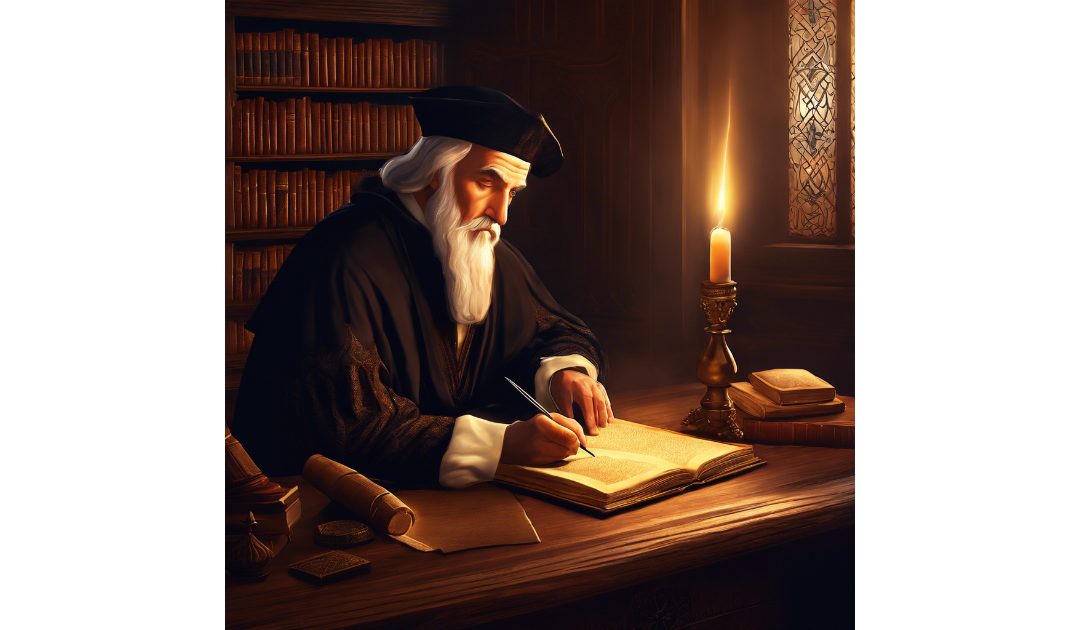On the 1st of March, 1516, the first New Testament was published in Greek by Erasmus. Erasmus was born in Rotterdam, the Netherlands, around 1466. He was the illegitimate son of a priest and received his early education in monastic schools. After joining the Augustinian order, he studied at the University of Paris, where he was exposed to scholastic theology and the intellectual currents of the Renaissance. Dissatisfied with the rigid methods of medieval scholasticism, he developed a deep appreciation for classical antiquity and the study of Greek and Latin texts.
Erasmus traveled extensively throughout Europe, residing in England, Italy, Switzerland, and the Low Countries. His interactions with scholars such as Thomas More, John Colet, and Aldus Manutius helped shape his views on humanism, religious reform, and education.
As a leading figure of Renaissance humanism, Erasmus emphasised the study of classical texts and sought to restore the purity of ancient knowledge. He was particularly devoted to philology, the study of languages and texts, believing that a correct understanding of original sources could lead to intellectual and moral enlightenment.
One of his most notable contributions was his critical edition of the Greek New Testament, titled Novum Instrumentum omne (1516). This groundbreaking work corrected many errors found in the Latin Vulgate Bible and provided scholars with a more accurate version of the scriptures. Erasmus believed that a return to the original sources of Christianity could help reform the Church and foster a more authentic religious experience.
Erasmus sought to reform Christianity from within rather than break away from the Catholic Church. His writings often criticised the corruption, greed, and superstition that plagued religious institutions. In The Praise of Folly (1509), one of his most famous works, he used satire to mock the excesses of the clergy and the blind formalism of religious practice.
Despite his criticisms, Erasmus was not a revolutionary in the mold of Martin Luther. While he agreed with many of Luther’s concerns regarding Church corruption, he rejected the Protestant Reformation’s more radical doctrines, such as justification by faith alone. Instead, he advocated for a middle path, emphasising inner piety, moral virtue, and the importance of free will. His 1524 work On the Freedom of the Will was a direct response to Luther’s deterministic views on predestination.
His moderate stance made him a target for both Catholics and Protestants. Reformers like Luther saw him as too timid, while conservative Catholic theologians viewed his critiques as dangerous. Nevertheless, his influence persisted, as his ideas helped shape later religious debates and reforms.
Erasmus was a strong advocate of education, believing that intellectual and moral development were essential for a just and enlightened society. He promoted the study of classical literature, ethics, and theology, arguing that education should cultivate wisdom, virtue, and tolerance. His writings on pedagogy, such as On the Method of Study, influenced generations of educators.
Although Erasmus never founded a formal school of thought, his ideas permeated the intellectual climate of Europe. His emphasis on textual criticism laid the groundwork for modern biblical scholarship, and his calls for reform influenced both Catholic and Protestant thinkers.
Erasmus spent his later years in Basel, Switzerland, continuing to write and engage in intellectual debates. He passed away in 1536, leaving behind a vast body of work that continued to shape European thought. His legacy endures in the fields of theology, philosophy, and education.
I think it can be said that Erasmus was one of the good guys, which is more than I can say for Martin Luther. Whilst researching Called to Account, the fourth book in the Sir Anthony Standen Adventures, I discovered that when Luther first visited Frankfurt he was appalled by the treatment of the Jews there. Then, after failing to convert them to his new Protestantism, he wrote that their homes and synagogues should be burnt.

